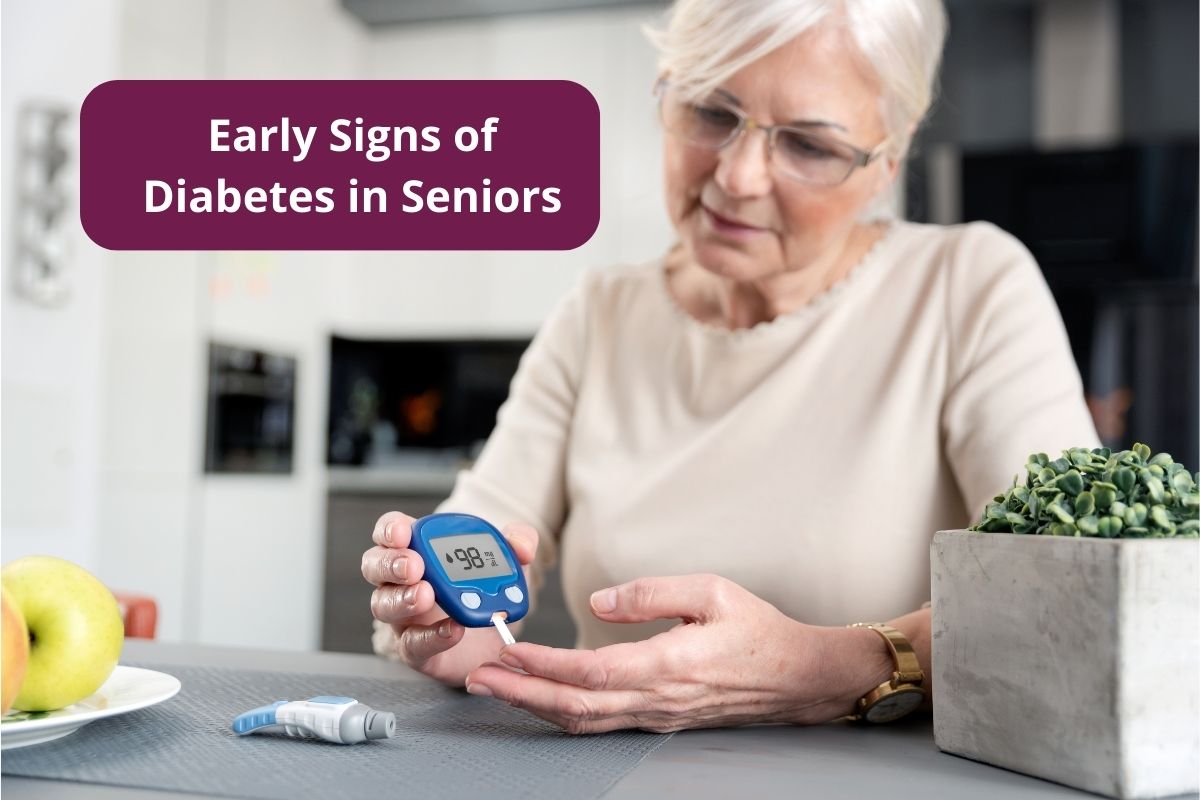Diabetes is a disease that affects men and women across all age ranges. According to a study published in the National Library of Medicine, 40% of the North American population diagnosed with diabetes are 65 years of age or older.
A separate Healthline report suggests one out of every four people in this age group have the disease, and some aren’t even aware of it. Diabetes in seniors is becoming an increasing concern as the condition becomes more mainstream. What are the signs of diabetes as it pertains to elderly patients?
What Causes Diabetes in Seniors?
What are the risk factors for diabetes in older people? You are at an elevated risk for the disease if you meet one or more of the following conditions:
-
Are overweight or obese
-
Have a direct family member with diabetes
-
Are over the age of 45 and have high blood pressure
-
Live a sedentary lifestyle, defined as less than 150 minutes of physical activity per week
Consequences of Unchecked Diabetes in Seniors
It’s important that seniors see a physician for diagnosis. While there is no cure for diabetes, you can keep the disease in check with lifestyle changes. We have also compiled a list of myths and misconceptions surrounding diabetes to help seniors and caregivers make the disease more manageable. If you ignore the symptoms, the negative impact can be cumulative and include:
-
Damage to the small and large blood vessels
-
Damage to the kidneys
-
Clots in the veins and nerves
-
Loss in eyesight
-
Elevated risk of a stroke and heart attack
5 Signs of Diabetes in Seniors
If you are over the age of 65 or you have someone of that age in your care, be on the lookout for these signs of diabetes:
Frequent Urination
You may notice an increase in urination. This is due to an excess buildup in blood sugar, which the kidney must work overtime to dispel through urination.
Increased Thirst
Just as you find yourself urinating more often, you may also notice increased thirst, a condition known as polydipsia. When the kidneys work to remove the excess sugar, it must use up more water to create urine. Your body needs to make up for the lost water by consuming more fluids.
Tingling and Numbness
You may notice a tingling sensation in your hands and feet that come and go. These areas may also feel numb. This is a sign of nerve damage from high glucose levels wreaking havoc in the blood vessels.
Blurry Vision
You may experience blurred vision in one or both eyes. You don’t lose vision completely, but your eyes lose the ability to discern sharp details. Loss in vision stems from high glucose levels damaging the intricate network of nerves in the eyes.
Fatigue
You may feel lethargic more often even after getting a full night’s sleep or taking a nap. When diabetes sets in, your body cells lose the ability to absorb glucose and use it for energy. As a result, you feel both physically and mentally drained more often despite no drastic changes in lifestyle.
What to Do if You Notice Signs of Diabetes
If you or an elderly loved one experience the above signs, seek professional diabetes care in Lafayette, LA right away. Tests like a water deprivation test or magnetic resonance imaging scan will determine whether you have diabetes or pre-diabetes.
Need At-Home Diabetes Care in Lafayette, LA?
You can’t cure diabetes, but you can help a senior loved one manage the disease. At Home Instead, we assist senior patients with day-to-day living and their medical needs.
Our compassionate CAREGivers can ensure diabetic patients keep up with their medications. We also assist in preparing diabetes-friendly meals and provide daily companionship. Entrust the care of your senior loved one to our professional staff! Contact us today for a free Care Consultation.
Image source: Canva



